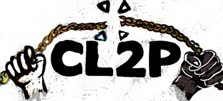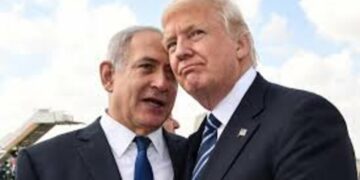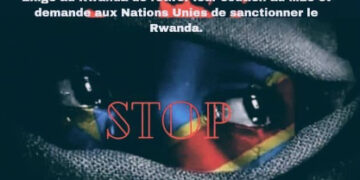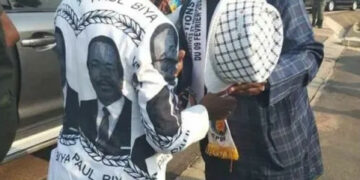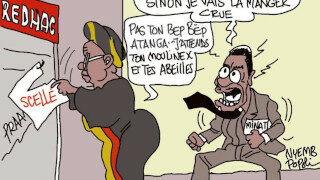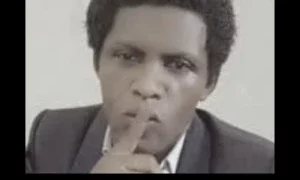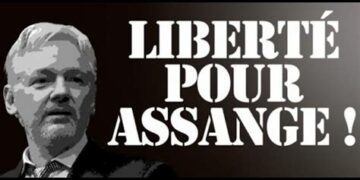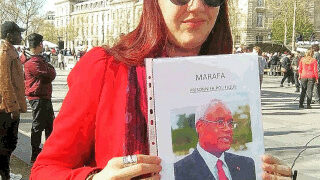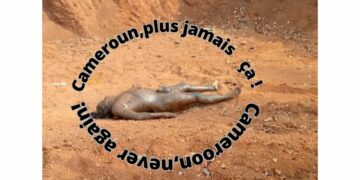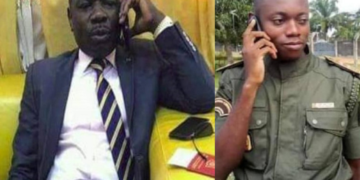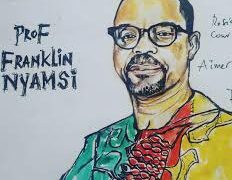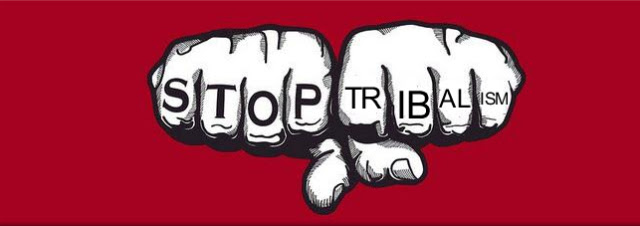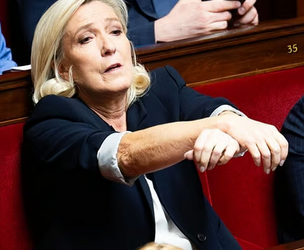My Tribe First: State-Making, Communal Advocacy and Ethno-Fascism as Fantasies of Absolute Power in Cameroon
The historical account of the distrust of authority by the Betis, by the writer, politician and former Cameroonian prisoner of conscience Dieudonné Enoh Meyomesse, deserved to be done, especially for all those who reduce the political history of Cameroon to a tribal division…
Indeed, “my tribe first” attitude must be opposed at every turn because it positions tribe as more important than policy, character, or clear thinking. More, that kind of genocidal attitude is short-sighted because tribalists do not understand that Cameroon is a country of laws and a signatory of international human right agreements such as The Hague Tribunal which put human rights in Cameroon within an international framework. Hence, while tribalists think they can get away with anything, the reality is that they cannot.
Thus, it would have been desirable for the author to go back to the origins of the creation of the Union of Popultaions of Cameroon (UPC), the emblematic nationalist and independence party of Cameroon, so that these followers of ethno fascism become fully aware of the diversity of backgrounds and origins of political actors in Cameroon, such as former Prime Minister Charles Assale (one of the founders of the UPC), Théodore Mayi Matip (former combat partner of Ruben Um Nyobe, before turning into a cacique of Ahmadou Ahidjo’s single-party UNC party and irremovable vice president of the National Assembly), and even Paul Biya, our reactionary president, who flourished during his years of study in France with this nationalist and independence movement. To quote only those.
How all these people were cognizant of notions of self-knowledge and determination and productive communal advocacy and associational autonomy as an end goal of emancipatory practices? Thus, the notion that the community was the source of empowerment, creation of rights and entitlements. No wonder, the current failure of state-making in Cameroon has cheapened into the resurgence of genocidal ethno fascism as a fantasy of absolute power. Thus, how tribal politics are by nature the expression of intellectual defeat and the tribe soiled into an opportunistic folly trying to keep us into a colonial plantation mentality and a failed project of national emancipation.
But how to restore these few truths and put the issues ordinary Cameroonians really care about such as – that of chronic poor governance combined with extreme longevity in power of one man – without being systematically accused by the ethnofacist and domestic terrorists (who are particularly rife in social networks) to stand in solidarity with the « extermination » of the Bamileke, or » the genocidaires » at the head of the State and their supporters who favor ethnic cleansing in the two English-speaking regions?
Indeed these tribalist snipers posted on Facebook arrogate the right to infantilize, banalize and lock us into tribal boxes, according to our social origins, family, regional … and pretend not to see the systematic separation and sometimes to death that some of us are, especially as citizens of South Cameroon, especially because of our progressive ideas and on the grounds that we openly criticize the policy led by Paul Biya in Cameroon.
This tribal stigma is now confused with the creeping conversion of some free thinkers and opponents Beti to Biyaism.
We already had the suspicion in the vitriol tribune published by Dieudonné Enoh Meyomesse against the English-speaking contestants, whom he all likened to Biafran foreigners from Nigeria. This time the writer extends his technique of generalization to all the Cameroonian opposition, which he accuses of being « the stupidest of Africa »..
More than a strong nod to the regime of Paul Biya, Mr. Enoh Meyomesse marks without explicitly saying his conversion to the least ideological and late to his theses, then is even more precise in its elements of language, firstly through the denial of Cameroonian nationality to certain English-speaking activists living abroad, then the recurrent blame for the opposition, accused as always of all the ills that undermine Cameroon.
As much to say it friendly and respectfully to Dieudonné Enoh Meyomesse: after 35 years of political « felony » in Cameroon, we do not do it anymore!
Joel Didier Engo, President of the CL2P and Olivier J. Tchouaffe, PhD, Spokesman of the CL2P

Version française
Ma Tribu d’Abord: Unité nationale contre l’ethno-fascisme en tant que fantasmes de pouvoir absolu au Cameroun

Par Joel Didier Engo, President du CL2P et Olivier J. Tchouaffe, PhD, Porte-parole du CL2P
Le récit historique de la défiance à l’autorité par les Betis, opéré ici par l’écrivain, homme politique et ancien prisonnier d’opinion camerounais Dieudonné Enoh Meyomesse, méritait bien d’être fait, surtout à l’adresse de toutes celles et ceux qui réduisent l’histoire politique du Cameroun à un découpage tribal… En effet, l’attitude de «ma tribu d’abord » doit être combattue à chaque occasion parce qu’elle place la tribu au-dessus de la politique, du caractère, ou de la pensée objective et claire.
En plus, le Cameroun est un pays de droits et signataire d’accords internationaux sur les droits humains tels que celui portant création du Tribunal Pénal International de La Haye qui place les droits humains au Cameroun dans un cadre international. Par conséquent, alors que les tribalistes pensent qu’ils peuvent s’en tirer avec n’importe quoi, la réalité est qu’ils ne peuvent pas.
Pour autant, il eût aussi été souhaitable que l’auteur remonte aux origines de la création de l’Union des Popultaions du Cameroun (UPC), l’emblématique parti nationaliste et indépendantiste kamerunais, pour que ces adeptes du repli tribal prennent pleinement la mesure de la diversité des parcours et des origines des acteurs politiques kamerunais, à l’instar de l’ancien premier ministre Charles Assale (un des fondateurs de l’UPC), David Mayi Matip (ancien compagnon de lutte de Ruben Um Nyobe, devenu le principal cadre du parti unique UNC d’Ahmadou Ahidjo et inamovible vice président de l’assemblée nationale), et même Paul Biya, notre président réactionnaire, qui a fleurté pendant ses années d’études en France avec cette mouvance nationaliste et indépendantiste. Pour ne citer que ceux-là.
Comment tous ces Camerounais étaient conscients des notions de connaissance de soi et d’auto- détermination et l’unité nationale comme une forme d’autonomie associative et productive avec des finalités pratiques émancipatrices. Ainsi, la notion que la communauté était la source d’émancipation et de pouvoir. Il n’est pas étonnant que l’échec actuel de la construction de l’État au Cameroun va de pair avec la résurgence de l’ethno fascisme génocidaire en tant que fantasme du pouvoir absolu. Ainsi, comment la politique tribale est par nature l’expression de la défaite intellectuelle et la tribu souillée dans une folie d’opportunistes essayant de nous maintenir dans une mentalité de la plantation coloniale.
Mais comment rétablir ces quelques vérités et remettre la question camerounaise à l’endroit – celle d’une mauvaise gouvernance chronique conjuguée à une extrême longévité au pouvoir d’un seul homme – sans être systématiquement accusé par les talibans de la tribu (qui sévissent notamment dans les réseaux sociaux) d’être solidaire de «l’extermination» des bamilékés, ou «vendu aux génocidaires» à la tête de l’État puis à leurs partisans favorables au nettoyage ethnique dans les deux régions anglophones?
En effet ces tireurs d’élite tribalistes et terroristes postés sur facebook s’arrogent le droit de nous infantiliser, banaliser, et ranger dans des cases tribales, en fonction de nos origines sociales, familiales, régionales…et feignent de ne pas voir la mise à l’écart systématique et parfois à mort dont certains d’entre-nous faisons l’objet, notamment comme ressortissants du Sud Cameroun, en raisons particulièrement de nos idées progressistes et au motif que nous exprimons ouvertement des critiques à l’endroit de la politique menée par Paul Biya au Cameroun.
Cause perdue d’avance, parce que cette stigmatisation tribale se confond désormais avec la conversion rampante de certains libres penseurs et opposants Beti au Biyaîsme.
On en avait déjà le soupçon dans la tribune au vitriol publiée par Dieudonné Enoh Meyomesse contre les contestataires anglophones, qu’il assimilait tous à des étrangers biafrais du Nigiéria. Cette fois l’écrivain étend sa technique de la généralisation à toute l’opposition camerounaise, qu’il accuse d’être « la plus bête d’Afrique »…
Plus qu’un clin d’œil très appuyé au régime de Paul Biya, M. Enoh Meyomesse marque sans le dire explicitement sa conversion pour le moins idéologique et tardive à ses thèses, puis se fait même plus précis dans ses éléments de langage, d’abord à travers le déni de la nationalité camerounaise à certains activistes anglophones établis à l’étranger, puis la culpabilisation récurrente de l’opposition, accusée comme toujours de tous les maux qui minent le Cameroun.
Autant le dire amicalement et respectueusement à Dieudonné Enoh Meyomesse: après 35 ans de «félonie» politique au Cameroun, on ne nous la fait plus!
Joel Didier Engo, President du CL2P et Olivier J. Tchouaffe, PhD, Porte-parole du CL2P
